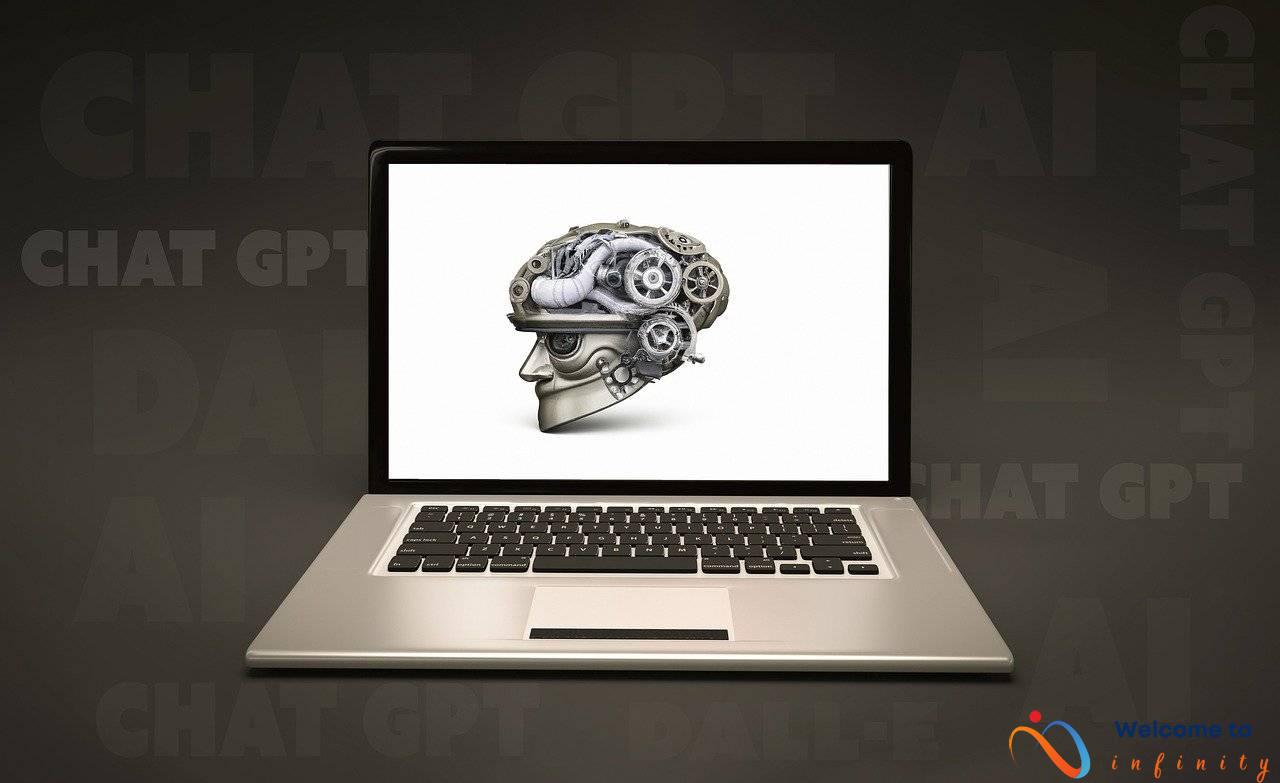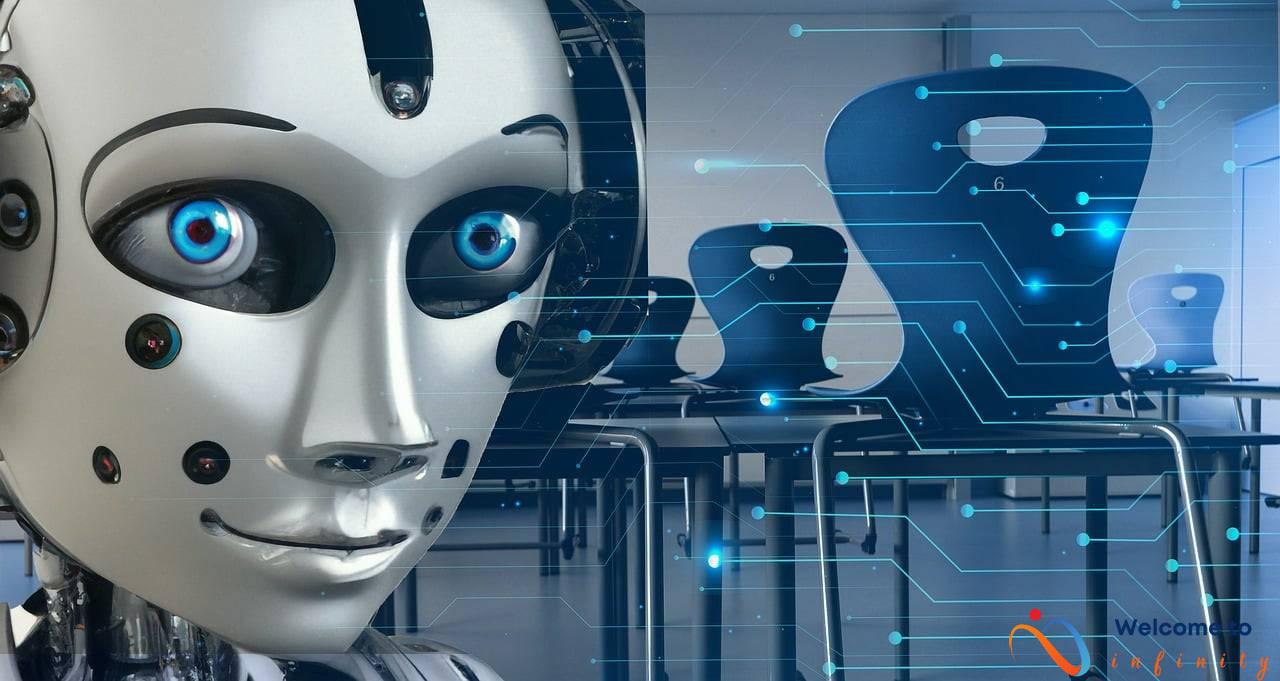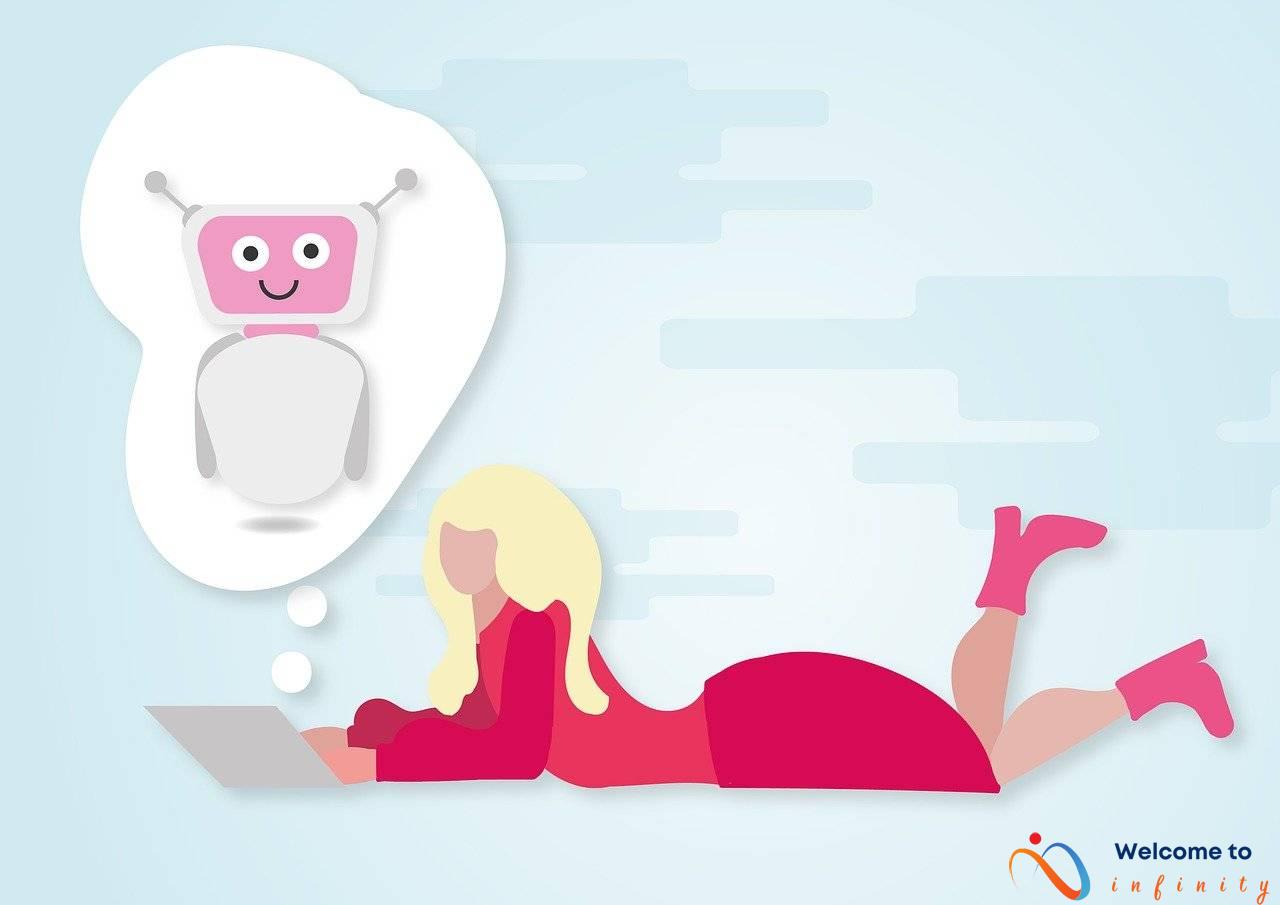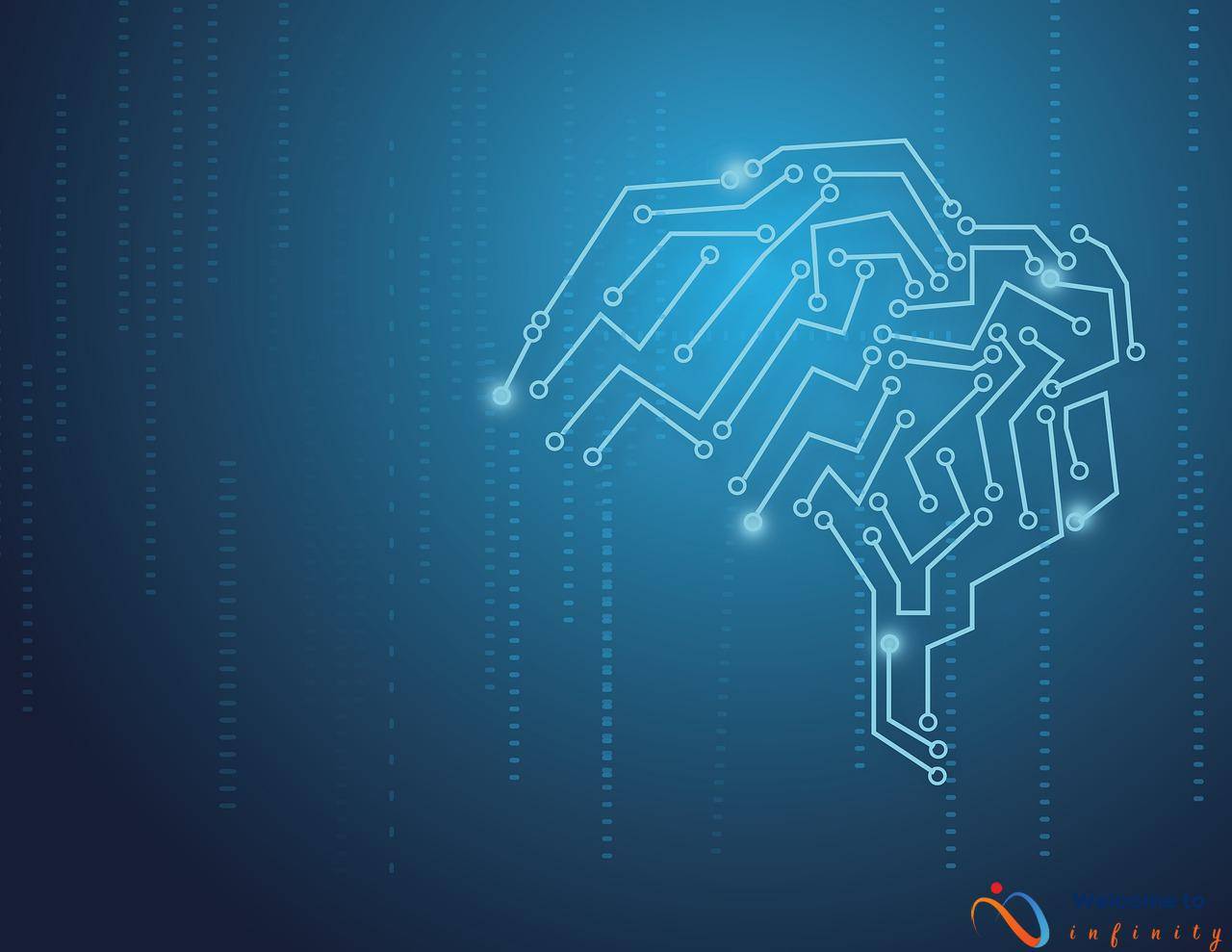Artificial intelligence (AI) has transformed the landscape of education worldwide. From personalized learning experiences to efficient administrative operations, AI has revolutionized the way we learn and teach. The use of machine learning technology in education helps create a more personalized learning experience for students, tailoring course material to individual student strengths and needs.
One of AI's main advantages in education is its ability to provide accessibility to learners without traditional boundaries. With AI's capabilities in delivering content and messaging, students can interact with educational material at any time, anywhere making learning available to anyone with a smartphone or computer which creates an increased accessibility.
AI has significantly improved the efficiency of administrative processes too. From grading papers to updating attendance records, AI makes tasks which range from time-consuming to repetitive, more manageable and efficient. This allows teachers to focus on creating content and providing extra support to their students, rather than bogged down with administrative tasks.
The use of AI in education does not only enhance personalization, accessibility, and efficiency but it also empowers the learners to take control of their education and learning experiences. Through the use of various adaptive learning tools, students can tailor their pace and have more autonomy over their learning journey.
The Benefits of AI in Education
Artificial Intelligence (AI) has the potential to revolutionize the way we learn and teach. AI-powered education has personalized the learning experience, made education more accessible, and improved efficiency. Personalization is key to improving the learning experience, and AI has enabled personalized education through adaptive learning platforms and personalized content creation.
AI has helped to remove barriers to education by creating more inclusive and accessible learning environments. For instance, people with disabilities can now receive a personalized education with the help of AI tools. AI-based translation tools have also helped students who speak different languages to access quality education.
AI has also helped to improve the efficiency of the education system by automating several labor-intensive tasks. For instance, grading and assessments of students can be accomplished using AI-powered assessment tools that are more accurate and unbiased. The time that would have been spent grading tests manually can now be devoted to developing more personalized learning experiences for students.
In conclusion, AI has the potential to revolutionize education. By personalizing the learning experience, making education more accessible, and improving efficiency, AI-powered education has the potential to help students achieve their full potential. It is important for schools and educators to embrace AI-based solutions to improve education, and for policymakers to put in place measures to ensure that data privacy and security is maintained.
Challenges of Implementing AI in Education
AI-powered education is making moves in redefining the traditional classroom experience, offering more personalized support and efficient ways to cater to students' individual needs. However, with this cutting-edge technology comes a set of challenges that need to be addressed. One of the most pressing concerns is the existing gaps in AI implementation across the education landscape.
Simply adopting AI without proper planning, resources, and training for educators can cause inequality and disparities, leaving behind those who don't have access to modern technological resources. This can create a digital divide that further marginalizes low-income and underprivileged students, reducing their chances of success at school.
On the ethical front, there are concerns over the automation of tasks that have traditionally been handled by teachers. This has led to questions about the role of AI in the classroom and whether it will displace most teachers who have dedicated their lives to the profession. This presents a challenge that needs to be addressed, and teachers must be retrained to understand their new roles with AI.
Another challenge that comes with integrating AI into the classroom is the need for extensive data infrastructure to ensure that the system works smoothly and efficiently. This means investing in hardware, software, and technical support to enable AI to be conducive to giving accurate and reliable feedback for students. Added to this is the concern for data privacy and security of students' personal information as well as protecting against potential cyberattacks.
Lastly, another challenge is the potential biases and shortcomings that AI systems might hold. With algorithms being created by humans, they are susceptible to unintentional errors and biases. This can lead to serious ramifications in a learning environment where student needs must be catered for.
Addressing Concerns about AI Education
As with any new technology, there are concerns about the implementation of AI in education. One major concern is the fear among teachers that they may lose their jobs to automation. However, it is important to note that AI is not meant to replace teachers, but to assist them in providing a more personalized and engaging learning experience for students.
Another concern is data privacy and security. With the increased use of digital tools and platforms, there is a need to safeguard student data from potential breaches and cyber threats. Schools and educators must take measures to protect student privacy and ensure that data is used ethically.
Prejudices and biases in AI-generated content and algorithms are also a significant concern. AI relies on data to make decisions, and if that data contains biases or prejudices, it can perpetuate inequality and discrimination. To address this, educators must ensure that the AI systems they use are based on diverse and accurate data, and constantly monitor and adjust them to remove biases.
Overall, it is important to acknowledge these concerns about AI in education and work towards addressing them. By integrating AI technology thoughtfully and ethically, we can harness its power to revolutionize the way we learn and teach.
Addressing Teacher's Fear of Losing their Job
One of the biggest concerns about AI in education is whether or not it will replace human teachers. While it's true that AI can provide personalized learning experiences and automate certain aspects of teaching, there is no substitute for the guidance and support that only a human teacher can provide.
Instead of viewing AI as a threat to their profession, teachers can embrace it as a tool to enhance their skills and expertise. By leveraging AI-powered learning platforms, teachers can gain deeper insights into their students' learning patterns, identify knowledge gaps more effectively, and adapt their teaching strategies to support individual needs.
Moreover, the integration of AI into the classroom can create more time for teachers to focus on personalized coaching and mentoring to students. Educators can use data generated from AI to identify areas that require student engagement and develop teaching plans to keep students motivated and curious.
Teachers can also develop new skills through professional development programs that equip them with the technical knowledge and expertise to use AI-based tools more effectively. With programs such as AI EdTech certifications, teachers can ensure that they are up-to-date with the latest trends in AI and EdTech innovation, and create a foundation for innovation in the classroom.
While AI will undoubtedly play a critical role in the future of education, it's essential to remember that it will not replace human teachers. Teachers can leverage AI as a tool to enhance their skills and expertise and provide even better guidance and support to their students.
Ensuring Data Privacy and Security
In today's digital age, there is a growing concern about data privacy and security. Educational institutions need to take necessary measures to secure sensitive student data and protect their privacy rights. With AI disrupting traditional education, it becomes even more critical to protect personal data from cyber threats.
The rise in cyber attacks and data breaches has led to an increased need for security measures. Schools and educators can safeguard student data by implementing encryption, firewalls, and other security protocols. They can also implement two-factor authentication to ensure only authorized parties can access student data.
In addition to technological measures, schools and education providers must also establish clear data privacy policies. These policies should outline how student data is collected, stored, and used, and provide students and their families control over their personal information.
Educators can also help students become more aware of the importance of data privacy and security. By integrating digital citizenship lessons into the curriculum, teachers can educate students on the responsible use of technology and the importance of safeguarding their personal information.
In summary, ensuring data privacy and security is vital in the digital age. By implementing appropriate security measures and establishing clear data privacy policies, schools and educators can protect sensitive student data and maintain trust with their students and families.
Addressing Prejudices and Biases
As AI increasingly becomes a part of education, there is a major concern over prejudiced and biased content generated by AI algorithms. The algorithms are based on previously gathered data, which can be fraught with implicit biases and prejudices. This can result in AI-generated content that perpetuates inequalities and reinforces stereotypes.
The solution to this challenge lies in constantly monitoring and auditing the content generated by AI algorithms. Educators need to work closely with AI developers to ensure that the content being generated is accurate, fair, and unbiased. Regular reviews and updates to the algorithm and its data sources can help minimize these issues.
In addition, it is important to involve diverse groups in the development and testing of AI algorithms to ensure that it is not inadvertently reinforcing prejudices and biases. By involving individuals from different backgrounds and perspectives, AI algorithms can be more effectively tailored to meet the needs and preferences of a diverse student population.
In summary, addressing prejudices and biases in AI education requires a collaborative effort between educators, developers, and diverse groups. It requires a commitment to auditing and updating the algorithms and involving diverse perspectives in their development. By taking these steps, we can ensure that AI technology augments learning and does not perpetuate inequalities.
How AI is Revolutionizing Learning
Artificial Intelligence (AI) is heralded as the defining technology of the 21st century. AI in education has enormous potential to transform the way students learn and how educators teach. AI-powered machines and software have the ability to analyze data, recognize patterns, and adapt according to student feedback. Let's explore how AI revolutionizes learning and enhances the educational experience.
One of the primary use cases of AI in education is personalized and adaptive learning platforms. These platforms have the capability to tailor individual learning pathways based on a student's unique abilities and learning preferences. With adaptive learning platforms, educators can create an individualized learning experience that suits each student's unique needs. AI-driven assessment tools can provide instant and accurate feedback on student progress and help teachers tailor their instruction to each student's needs.
Another key use case for AI in education is the creation of AI-powered learning content. AI-enabled educational content can engage students more effectively and promote a better understanding of complex topics. By analyzing vast quantities of data, AI-generated content can be specifically tailored to meet the needs of diverse learners. This system ensures that each student has access to tailored educational resources that cater to their specific learning styles.
Artificial intelligence has the potential to provide greater access to education. AI-powered tools can help teachers to manage and organize large classes more efficiently, allowing them to focus on their students' individual needs. For instance, educational chatbots can answer queries, provide feedback and conduct assessments. This technology reduces the workload on teachers and provides students with an immediate response to their queries. Therefore, it enables educators to provide more individual attention to each student.
In conclusion, AI is transforming traditional learning environments and creating opportunities for a more personalized and efficient educational experience. By understanding the potential of AI-powered education, educators can improve their teaching methods and provide students with a platform that adapts to their unique learning needs. AI has brought new opportunities to the table, and education is no exception. The future of education is undoubtedly AI-enabled and has the potential for significant enhancements that lead to more effective learning.
Personalized Learning and Adaptive Learning Platforms
Personalized learning platforms that leverage artificial intelligence (AI) are revolutionizing the way students learn. By analyzing data such as learning styles, interests, and progress, these platforms can create custom learning experiences that cater to individual student needs. Unlike traditional classroom environments where teachers have to adapt to the varying needs of a large group of students, AI platforms can efficiently personalize learning based on each student's progress and ability.
Adaptive learning platforms are one of the most significant innovations in personalized learning in recent years. These platforms use a combination of data analytics, machine learning algorithms, and educational content to create an adaptive learning experience. Adaptive learning has the potential to make education more effective and efficient by tailoring it to individual student needs. These platforms help students learn at their own pace and provide support whenever required.
Moreover, AI-powered personalized learning platforms can help teachers access real-time data on student's strengths and weaknesses, allowing them to monitor their progress and provide targeted interventions when necessary. This way, teachers can provide effective guidance and support to students and improve the efficiency of the learning process.
In summary, AI-powered personalized learning platforms represent a significant step in transforming education by offering customized learning experiences based on student progress and ability. These platforms enable students to learn at their own pace, provide teachers with data-driven insights, and improve overall efficiency. As technology continues to advance, AI will play an ever-increasing role in education, making learning accessible and effective for all students.
AI-Powered Educational Content Creation
Artificial intelligence (AI) has great potential for revolutionizing education. One such area where AI holds immense opportunities is educational content creation. AI-powered tools can help educators create more engaging, accurate, and personalized content that caters to the needs and learning style of diverse learners.
AI-powered educational content creation tools use machine learning algorithms to analyze the learning needs of individual students and generate customized content. These tools help educators in creating content that is more engaging, interactive, and personalized to individual student needs.
AI-driven educational content creation tools use natural language processing and machine learning algorithms to analyze multiple sources of information to create accurate and comprehensive content that can be used for personalized learning. The tools can also monitor student progress and suggest relevant content based on their strengths and weaknesses.
AI-powered content creation tools can also be used to create content that is accessible and inclusive. It can analyze the reading level, vocabulary, and contextual information needed for personalized learning to create content that is easily understandable for individual students. This can help bridge the learning gaps and ensure that all students can succeed.
Overall, AI-powered educational content creation tools help educators create more engaging, accurate, and personalized content that caters to the needs of diverse learners. This not only improves the learning experience for students but also saves educators a significant amount of time and effort in creating content manually.
Assessment and Evaluation
Assessment and evaluation are crucial components of the learning process, and AI-based tools have the potential to revolutionize how educators monitor student progress. AI-powered assessment tools can analyze student performance data to provide more accurate and unbiased feedback. This allows teachers to evaluate students' strengths and weaknesses more efficiently and adapt their teaching strategies to meet individual needs.
One significant advantage of AI-based assessment is that it can eliminate biases and inconsistencies that may come with human evaluation. AI tools use machine learning algorithms to analyze large data sets and identify patterns and trends more accurately than humans. This ensures that assessments are unbiased, which is critical in providing the best learning experience for students.
AI-based assessment tools can also provide instantaneous feedback to students, enabling them to track their progress throughout the learning process. They can highlight areas where they need to improve and provide suggestions on how to improve. This helps students take an active role in their learning and motivates them to work harder to achieve their goals.
Furthermore, AI-based assessment can help teachers identify students who may need additional support. The tool's data analysis capabilities can pinpoint areas where students are struggling and provide suggestions on how to help them progress. This ensures that all students receive the support they need to succeed.
In conclusion, AI-based assessment tools have the potential to provide more accurate and efficient insights into student progress, support individualized learning, and improve teaching strategies. While it cannot replace human intuition and feedback, it can augment it to provide a more comprehensive and personalized assessment of student progress.












